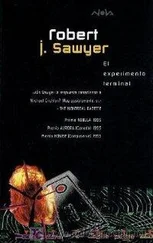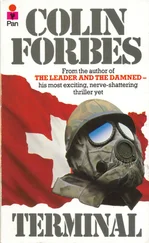Giti smiled. “Submitting to Christ, living for Him is all that we truly have in life. Don’t you believe that?”
“Probably not,” Jack said, being honest. “Most of the time, I don’t live for Jesus; I live for myself. I expect I’m a source of disappointment for the Lord. I think if most people are honest, that’s the truth about them, too.”
“I am amazed!” Giti said. “I so want to go to America one day. A place where we can praise Jesus and worship God without worry, freely. And everyone there loves Him. Now you say this is a falsehood?”
“Hate to break your rose-colored glasses,” Jack said.
“What does this mean?” Miriam said.
Jack shook his head. “America’s pretty rotten these days. People shop and play on Sunday instead of going to church. Walmart open twenty-four/seven, porn on every corner, casinos, too. It’s gone to hell in a handbasket.”
“They no longer worship God on Sunday?” Giti asked.
“Lots of people still do,” Jack said. “Don’t get me wrong. My mom and dad, they’re Christians, in church every Sunday. But these days, more Americans don’t darken the chapel door except on maybe Christmas and Easter. Most people in America today? They worship money.”
“That is so sad,” Miriam said, using a dry cloth on Jack, rubbing the water from his hair.
“To have such liberty, and so many blessings of wealth as you Americans have. To not praise God for these things? For your freedom? It makes me want to cry,” Giti said.
Jack thought a moment, and said, “We’re pretty piggish, I guess.”
“Yes you are,” Giti agreed. “I would give anything just to stand on my feet on American ground. Even for only a day!”
Jack looked out the door and saw the old guy with the rifle guarding the entrance keeping his eye on them.
“What are you looking at?” Jack called to him.
The old guy didn’t understand what Jack said but knew it wasn’t anything he should like. So he just looked more, and Jack scowled.
“Don’t mind him,” Giti said. “That is Yasir, a Bedouin man who herded goats with his brothers for many years along the Tigris valley where I lived. My mother bought milk and cheese from him before the war. He is not a bad man. Yasir has a simple mind, so don’t be rude to him.”
“What about your husband?” Jack asked, as the girls finished drying him.
“Abu Omar?” Giti answered, as if there were anyone else.
“Right,” Jack said. “What’s his story?”
“Before the Americans overthrew President Saddam Hussein, Abu Omar was Colonel Omar Bakr, commandant of the Republican Guard in Baiji. He lived in a fine home, and was born in Saddam’s hometown of Tikrit. Some say he is related to him.
“Colonel Bakr held great influence in the Arab Socialist Ba’ath Party. Then came the Americans three years ago. It seems an eternity now. He lost everything. Even his wife and children, who died in the bombing in Baghdad.
“Some men from Jordan and Syria joined Abu Omar and they formed the insurgent army, Jamaat Ansar al-Sunnah, a protector of their Arab faith. He is vicious and cruel.”
“Help me escape,” Jack whispered.
Giti reacted as if the American had jolted her with Abu Omar’s cattle prod.
“You can come with me. You and your sisters,” Jack told her. “I will get you to America. You and your sisters. I know people who can get it done. I promise!”
“Do not speak of this ever again!” Giti whispered. “You will die, and so will we.”
“Miriam said he was going to kill you soon, because you’re pregnant,” Jack reminded her.
Giti glared at Miriam. “He will kill not only me but Miriam and Amira and our Syrian sister, Sabeen, too.”
“Sabeen?” Jack asked, now considering the problems and advantages of four teenage girls. “Can she use a gun?”
“Certainly not!” Giti huffed back in a harsh whisper.
Miriam leaned close, and said, “She might be able to use a gun. She is from Syria, after all. You don’t know. What is so hard? Point the gun and pull the trigger.”
Jack smiled.
“What is all this whispering?” Yasir said in Arabic with a loud, commanding voice.
He looked at Jack. “Why have you not dressed him? Are you wicked girls admiring his manhood? Shame on you!”
Amira came in the door behind Yasir.
“Ah, there is Amira now with the clothes,” Giti said in Arabic, and pointed at her sister.
Then she pointed at the keys on Yasir’s belt. “You must unlock the chains, so that he can dress.”
He looked at Jack and didn’t like the odds. “I will get some help.”
The old goatherd hurried upstairs to find backup, and Giti turned to Jack.
“What you suggest is utterly impossible!”
“Nothing’s impossible,” Jack said. “God has saved me many times over. He got me this far. He will not leave me to die here. Where’s your faith?”
“Suddenly you have faith?” Giti said. “It is not something you can choose today and forget tomorrow.”
“Does God require my faith to protect me?” Jack said. “People with great faith pray for me, and God hears them. We will get out of here. If you can’t trust me, trust God.”
“I cannot think of this!” Giti said.
Miriam and Amira both looked at her with big eyes and question marks.
“Why not?” Amira blurted. “If I die trying to leave this horrible place, it is better than living what is left of my life here.”
Miriam reminded Giti, “Very soon, Abu Omar will notice your baby bump. Then what? Do you wish him to feed you to his lions?”
“We will talk of this later,” Giti told them.
“We don’t have time to talk it over,” Jack reminded her, and made a cutting motion across his throat.
“Abu Omar will not kill you today,” Giti told Jack. “They must wait for Abu Musab al-Zarqawi. He will want to be here, or he will have you brought to him.”
“Zarqawi?” Jack asked.
“Yes,” Miriam said. Giti looked at her as if she said something wrong, and Miriam shrugged back. “What?”
“We should not talk about these things,” Giti said.
“We must!” Amira said. “God gives us courage and His blessings. We must do this!”
“Zarqawi. Do you know where he hides?” Jack asked.
“These days, he stays in a safe house in the country near the village of Hibhib,” Amira said.
“I’ve never heard of the place,” Jack said.
“Hibhib is a small community on Iraqi National Highway 2, maybe fifty kilometers north of Baghdad,” Giti added. “Have you heard of Khalis and Baqubah?”
“Yeah, I think so. They sound familiar,” Jack said, committing everything to memory, his Force Reconnaissance Marine self kicking into high gear.
“The village is maybe six kilometers west of Baqubah, as the bird flies,” Giti said.
“As the crow flies,” Jack corrected her.
“Yes, as the crow flies”—Giti nodded—“because there are no roads directly from Baqubah to Hibhib. You must drive ten kilometers up to Khalis, then down to Hibhib, another six kilometers. Or drive south, then up again, an even greater distance.”
“How do you know this?” Jack asked the girls.
Amira smiled. “My grandfather and uncle live in Hibhib. I have many family there, so I know Hibhib exactly.”
“No, I mean, how do you know that Zarqawi is in Hibhib?” Jack asked. “We have searched for him for years.”
“Zarqawi was here only two weeks ago,” Giti said. “Abu Omar offered him my family home at al-Shirqat, that he now uses, but Abu Musab said that was too far from Baghdad. Then he spoke of his house in Hibhib, a place he always goes to hide. No one looks there because it is quiet. Many of Saddam’s people hide there, too. People protect them there.”
Читать дальше












